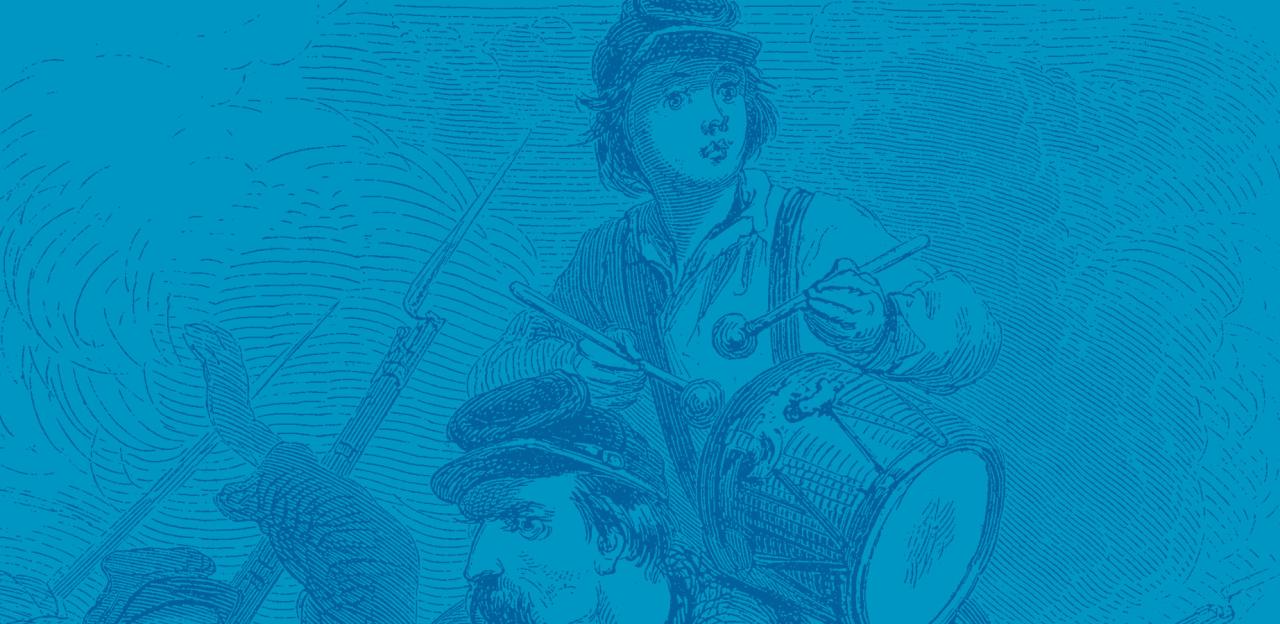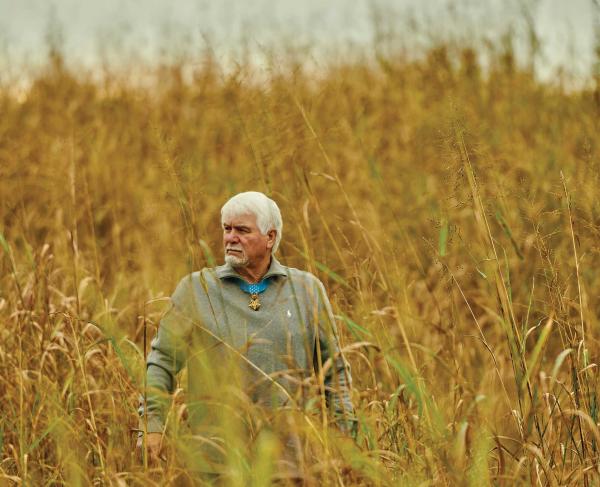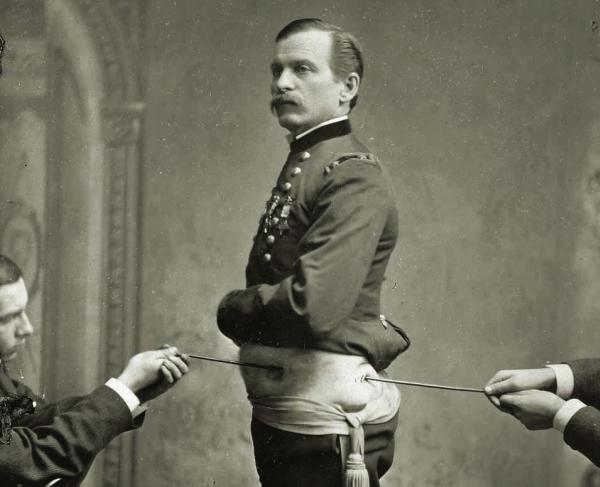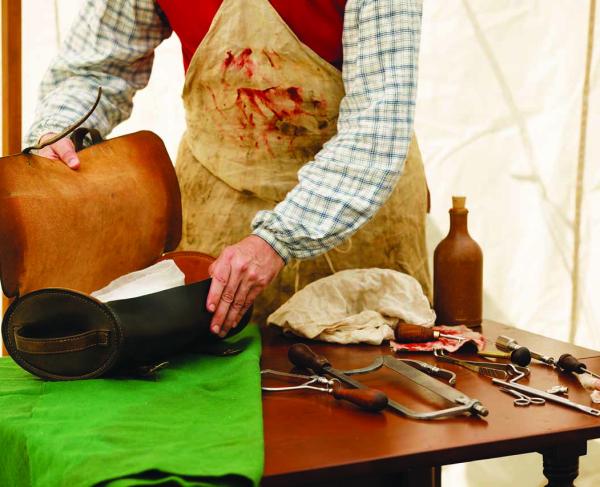Rosanne Zajko

Rosanne is a certified school librarian at Ancillae Assumpta Academy, a private Catholic school in the Philadelphia suburbs, where she teaches literature, information literacy and research skills to students in grades 1 through 8. In addition, Rosanne is an adjunct professor at Arcadia University, teaching graduate classes on children’s literature. She also serves as a judge for National History Day at the regional level. Her obsession with the Civil War took hold on a cold December day while standing at the Bloody Angle on Cemetery Ridge at Gettysburg, where, as Joshua Chamberlain noted, “on great fields, something stays….and the power of the vision [shall] pass into their souls.” She lives in Montgomery Township, Pa, the birthplace of Gen. Winfield Scott Hancock.
Q: How did you come to know about the Civil War Preservation Trust?
RZ: My husband and I had visited Chancellorsville and The Wilderness during the summer of 2002, just about the time that the battlefield was threatened by housing and commercial development. I was concerned about the scope of the development and the negative impact it would have on portions of the battlefield itself. To me, it wasn’t just land; it was a testament to our nation’s identity. The CWPT had announced their intentions to fight the development to preserve the battlefield. My township had undergone massive development over the years and I knew that once the houses and offices made an appearance in Chancellorsville, the hallowed ground of the battlefields would be compromised. I joined the CWPT and circulated their petitions among my friends and neighbors, collecting their signatures to show that there are many who believe in preserving our nation’s history. I was happy to find out that there existed a national organization to speak for people such as myself, who are able to voice an opinion but who do not have any influence individually to stop the encroachment on Civil War battlefields.
Q: How does your position as a librarian help you to teach the Civil War?
RZ: As a school librarian I have the opportunity to collaborate with classroom teachers and support their curriculum, particularly on multi-disciplinary projects. This is best illustrated with our 7th grade students, who visit Gettysburg as part of their class trip. As any Social Studies teacher will tell you, there just isn’t enough time in the curriculum or the school year to delve deeply into most topics, but we have the liberty to do that in Library class. I created an 8 week Library unit whereby the students would receive additional preparation for their class trip in our weekly scheduled Library class. The Social Studies teacher taught the political, economic and military aspects of the Civil War as outlined in the syllabus. In Language Arts, the students read Paul Fleischman’s Bull Run and selected a character for a reader’s theater. In Library class, the students used the characters from the story as a focus for research. For example, if their character was the doctor, they researched medicine in the Civil War. If they were a soldier, they learned how to drill. As a result, there was a strong affective connection as opposed to just learning dates and facts. I submitted the unit to the CWPT Best Lesson Plan Contest and was fortunate to win first place in 2008.
Q: How do you use technology to teach the Civil War?
RZ: With this unit, the students posted their research on a class wiki. Considering that 56 students were editing one wiki, albeit it with numerous pages, they did very well. They enjoyed creating the wiki so much that after the unit was completed many of them created their own personal wikis. Because the students focused only on one aspect of the Civil War, the wiki was a great way to share what everyone was learning. They used all of the information on the wiki to build a web page detailing their experience of the class trip. We also blogged extensively - I posed higher order thinking questions, some based upon the research they conducted and some based upon comments and preconceived ideas that the students had. The blog provided a way for them to reflect upon what they were learning. One of the most interesting blog discussions we had concerned whether or not the Confederates were Americans. As we moved closer to our class trip, the blog questions began to focus on Gettysburg.
Q: What do you think students enjoy reading about the most when it come the Civil War?
RZ: From my own experience, it breaks down according to gender. The boys enjoy non-fiction on the battles and the lives of the soldiers and the girls are more interested in the interpersonal relationships that are explored in an historical fiction setting. With this year’s National History Day theme of “Debate and Diplomacy,” I am very excited to know that many of my students are researching various Civil War and antebellum topics, which means that they will not only need to read non-fiction, but that they will also be reading primary sources as well. For many of them, this will be their first exposure to the voices of the past.
Q: What are your top three book recommendations for historical fiction on the Civil War?
RZ: Because my position requires me to read so much current Young Adult and children’s literature, I don’t usually have the opportunity to read “grown-up” books. When I do, my preference is to read non-fiction. My favorite adult historical fiction is Killer Angels, followed by Gods and Generals and The Last Full Measure. Not much of a range, I’ll admit. For my students, I recommend anything by Anne Rinaldi (for the girls), Gary Paulsen’s Soldier Heart and Crane’s The Red Badge of Courage.
Q: What are your top three book recommendations for nonfiction on the Civil War?
RZ: Without a doubt, the number one book is Battle Cry of Freedom. After that, I have so many books, including primary sources, that I can recommend, and they are all favorites, that it’s difficult to limit my recommendations to only three. I am mid-way through Porter Alexander’s Fighting for the Confederacy (the unabridged version). I like how he says exactly what’s on his mind. I was fascinated by the personalities in Team of Rivals and how Lincoln managed them. And I know that the question is asking for top three but I have to sneak in Coddington’s The Gettysburg Campaign: A Study in Command.
Q: What is your advice to other educators about teaching the Civil War?
RZ: Never stop learning. Remain curious. Be excited by and passionate about what you teach. Every new bit of information that you learn that isn’t in the curriculum, each new insight that you discover, is something that you can pass along to your students. You never know which one of them will be that one or two, or hopefully more, whose interest will be sparked and who will carry “the power of the vision” forward to the future.


